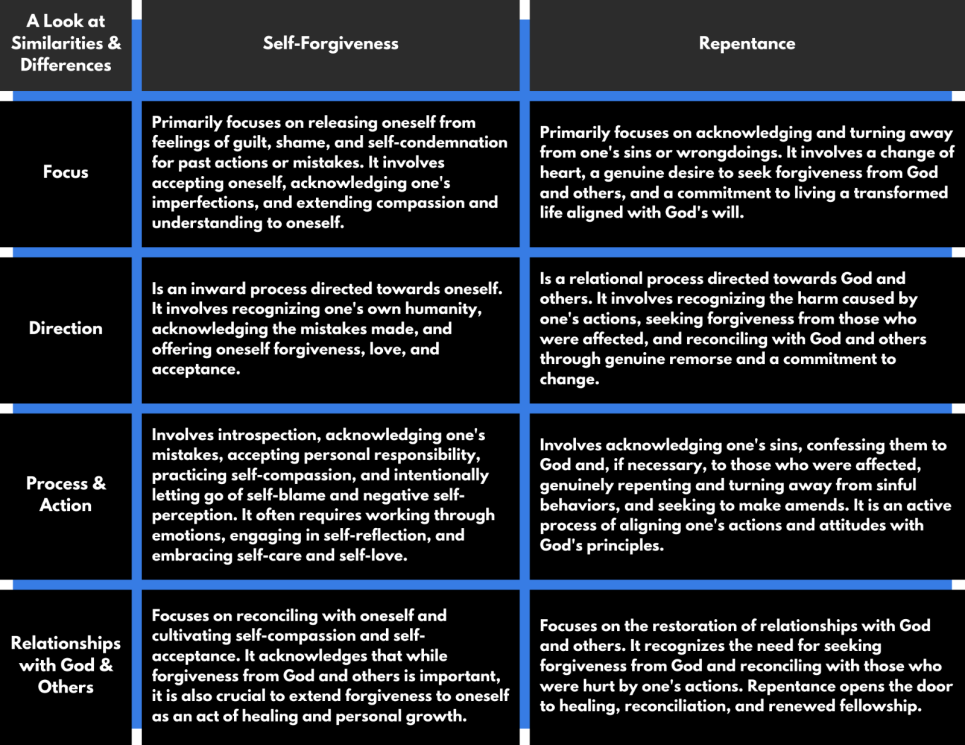Saul Turned Paul: A Story of Holy Conversion
Today we will explore the captivating story of Saul's conversion to Christianity, marking his transformation into the renowned apostle Paul. Saul's journey is a testament to the boundless grace, profound forgiveness, and transformative power found in encountering Jesus Christ. His conversion serves as an inspiring and pivotal moment, reminding us that no one is beyond the reach of God's love and that even the hardest hearts can be softened and transformed by His divine intervention. Join us as we explore the incredible events that unfolded on the road to Damascus and uncover the profound lessons that Saul's conversion story holds for us today. Get ready to be energized as we delve into the life and ministry of Paul, an instrument of God's grace and truth, and discover how his story can impact our own faith journey.
Life and Background
In the tapestry of biblical history, few figures have experienced a transformation as profound as Saul of Tarsus. Born into a devout Jewish family, Saul grew up immersed in Judaism's traditions, rituals, and teachings. His early life was marked by a fervent dedication to the Pharisaic sect, known for their strict adherence to the Mosaic Law. With an unyielding zeal for his faith, Saul was trained in the finest rabbinic schools, cultivating a deep knowledge of Scripture and the traditions of his people. His future seemed destined for greatness within the religious hierarchy of Judaism. However, his path would take an unforeseen turn, setting the stage for a remarkable encounter that would redefine his purpose and identity.
Saul's unwavering commitment to Judaism fueled his vehement opposition to the emerging Christian movement. As an ardent Pharisee, he viewed this new sect as a dangerous departure from the faith of his ancestors. He was blinded by his fierce convictions, seeing the followers of Jesus as heretics and a threat. So, he embarked on a crusade to stamp out this perceived deviation, becoming an active persecutor of early Christians. Saul's name quickly became synonymous with terror for those who embraced the message of Christ, as he relentlessly pursued believers, endorsed their imprisonment, and even condoned their executions.
But Saul began to destroy the church. Going from house to house, he dragged off both men and women and put them in prison. Acts 8:3
He made it his mission to extinguish the flame of this burgeoning movement, unknowing that an encounter with the risen Christ would shatter his convictions and set him on a path toward a remarkable transformation.
A Divine Encounter
Very few moments rival the overpowering happenstance Saul of Tarsus experienced on the dusty road to Damascus. Intent on persecuting the followers of Jesus, Saul embarked on a journey that would alter the course of his life forever.
Meanwhile, Saul was still breathing out murderous threats against the Lord’s disciples. He went to the high priest and asked him for letters to the synagogues in Damascus, so that if he found any there who belonged to the Way, whether men or women, he might take them as prisoners to Jerusalem. Acts 9:1-2
As he neared Damascus, a blinding light suddenly enveloped him, causing him to fall to the ground. In that moment of utter vulnerability, a voice, like thunder, resounded, "Saul, Saul, why do you persecute me?" Trembling and astonished, Saul replied, "Who are you, Lord?" The response echoed with authority, "I am Jesus, whom you are persecuting." (Acts 9:3-6)
In an instant, Saul's world as he knew it was shattered, his convictions upended. The encounter with the risen Christ pierced the very core of his being, unveiling the truth he had ferociously opposed. The brilliant light that had blinded him externally was now illuminating his soul, exposing the darkness of his former ways. In that moment, Saul's heart was awakened to the reality of Jesus as the long-awaited Messiah. The encounter laid bare the futility of his persecution and revealed the depth of God's mercy and grace.
Becoming Paul
The once fervent persecutor became a fervent believer. He arose from the ground with eyes that now beheld the truth, despite being physically blinded by the experience. Led by the hand into Damascus, he spent three days in solitude, prayer, and fasting, wrestling with the seismic shift in his understanding. Through the ministry of Ananias, a faithful disciple, Saul's sight was restored, symbolizing not only his physical healing but also the spiritual illumination that now guided his path.

Saul of Tarsus underwent an impenetrable transformation and embraced a new identity as Paul, the apostle. His life became a testament to God's redeeming power and the transformative nature of the Gospel. Paul's ministry was characterized by relentless dedication, fervent preaching, and remarkable journeys. He set off on multiple missionary voyages, traversing cities and regions to proclaim the message of salvation through Jesus Christ. In his tireless efforts, he faced numerous challenges, persecution, and hardships, yet his unwavering faith propelled him forward. Through his ministry, Paul became instrumental in the establishment of early Christian communities, nurturing believers, and guiding them in the ways of Christ.
Paul's contributions to Christianity extend far beyond his missionary endeavors. His epistles and letters hold a profound significance in shaping Christian theology and addressing various issues that arose within the early church. Inspired by the Holy Spirit, Paul penned letters to churches and individuals, addressing theological matters, moral conduct, doctrinal clarification, and pastoral guidance. These epistles, such as Romans, Corinthians, Galatians, Ephesians, Philippians, Colossians, and others, were not merely theological treatises but heartfelt communications aimed at encouraging, instructing, and strengthening believers in their faith journey. Paul's writings illuminated key aspects of Christian doctrine, including salvation by grace through faith, the unity of believers, the role of the Holy Spirit, and the importance of love and righteousness.
This encounter on the road to Damascus marked the beginning of Saul's remarkable journey as the apostle Paul, an instrument of God's grace and truth. No longer driven by misguided fire, Paul became a passionate ambassador of the Gospel, devoting his life to sharing the message of Jesus Christ. The immediate impact with the risen Savior was evident in the pure eagerness with which he proclaimed the Good News. Through his writings, missionary journeys, and unwavering commitment, Paul would leave an indelible mark on the early Christian church and shape the course of Christianity for generations to come.
Lessons Within Saul’s Conversion
Saul's conversion story stands as a powerful testament to the boundless grace, unfathomable forgiveness, and transformative redemption found in the heart of God. Prior to his encounter with Jesus, Saul's life was marked by zealous persecution of the early Christians. He was a fierce opponent of the emerging Christian movement, seeking to extinguish its flame. Yet, in an extraordinary act of grace, Jesus intervened in Saul's life, extending an invitation to redemption rather than condemnation. In that moment, the same Savior whom Saul had persecuted revealed Himself as the embodiment of love and forgiveness. Through this encounter, Saul experienced firsthand the radical grace that surpasses human understanding, paving the way for his transformation and his future role as the apostle Paul.

Saul's spiritual rebirth exemplifies the boundless depth of God's forgiveness. Despite Saul's vehement opposition to the Gospel, Jesus did not respond with wrath or vengeance. Instead, He met Saul's hostility with mercy and forgiveness. This divine forgiveness shattered the chains of guilt and condemnation that bound Saul, offering him a fresh start and a new purpose. The redemptive power of God's forgiveness is vividly displayed as Saul, who once persecuted the followers of Christ, became an avid proclaimer of the very message he had sought to eradicate. His change of heart stands as a testament to the truth that no sin is too great, no past too dark, to be beyond the reach of God's forgiving grace. Saul's evolution into Paul unveils the transformative power of redemption, illustrating that through Christ, anyone can experience forgiveness, restoration, and a life renewed.
How This Applies to You
Saul's conversion story offers valuable lessons that can inspire and transform our own lives. First and foremost, his story reminds us that no one is beyond the reach of God's grace. Saul, once an enemy of Christ, received the unmerited favor and love of God, which radically changed the trajectory of his life. This serves as a powerful reminder that our past mistakes and shortcomings do not define us or limit God's ability to work in and through us.

Saul's conversion also teaches us the importance of humility and openness to God's leading. Despite his zealousness and strong convictions, Saul humbled himself before God and surrendered to His will. This challenges us to examine our own hearts and surrender our own agendas, allowing God to work in and through us. It reminds us that our journey with Christ is not about our own accomplishments or self-righteousness, but about yielding to God's purpose and relying on His strength.

Furthermore, Saul's transformation also highlights the power of forgiveness and reconciliation. As Paul, he extended grace to others, even to those who had previously persecuted him. His example compels us to seek forgiveness and extend it to others, recognizing that we have been recipients of God's abundant mercy. Saul's turnaround inspires us to be instruments of reconciliation, healing broken relationships, and spreading the message of love and forgiveness in a world that often craves such restoration.

The Verdict Is In

Saul's conversion story serves as a beacon of hope, reminding us that no matter how lost or broken we may feel, God's grace is always sufficient to bring about transformation. It calls us to embrace humility, remain open to God's leading, and extend forgiveness to others. His dramatic conversion not only altered his identity but also set in motion a remarkable journey that would shape the course of Christianity itself. Saul's transformation from persecutor to apostle stands as a powerful testament to the boundless grace, forgiveness, and redemptive power found in the Gospel. May Saul's journey from darkness to light inspire us to boldly pursue our own spiritual transformation and faithfully walk in the purpose God has for each of our lives.
- Torrance Church of Christ

















